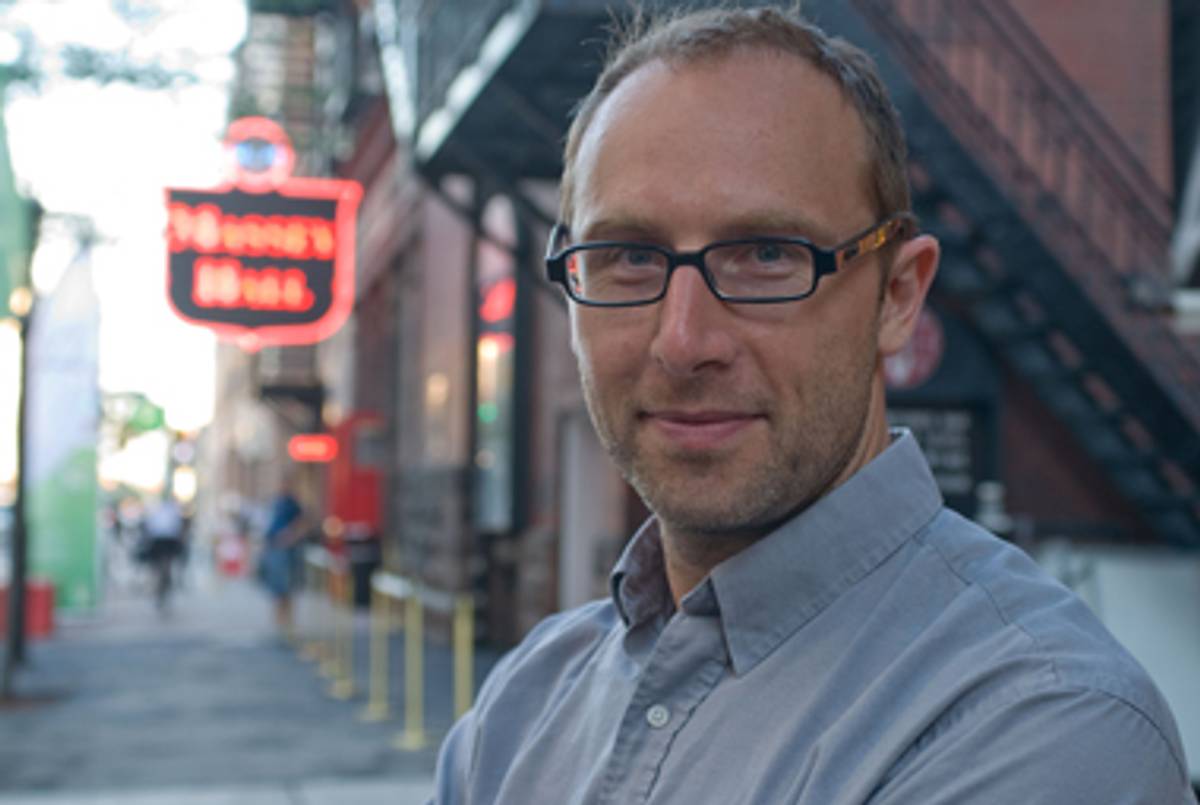Purgatorio
As a child, writer David Bezmozgis was among the Soviet refugees who waited in a seaside Italian village for a visa to the U.S. or Canada. His novel The Free World explores the grittier side of life there.

In the late 1970s, the Italian seaside town of Ladispoli, about an hour’s drive northwest of Rome, became a way station for Soviet Jewish refugees, many stuck there for months while they awaited visas to enter the United States or Canada. The writer David Bezmozgis, then a child, was among the Jews waiting in limbo there, until his family eventually made it to Toronto, where he set his acclaimed first book, Natasha and Other Stories. For his debut novel, The Free World, Bezmozgis turned to Ladispoli, anchoring the book’s action there. It focuses on Samuil Krasnansky, a grumpy Communist who’s left the Soviet Union against his will; his son Alec, a happy-go-lucky lothario; and Alec’s wife, Polina, a non-Jewish Russian haunted by regret over leaving her aging parents. Bezmozgis spoke to Vox Tablet host Sara Ivry about his recollections of life in Ladispoli, the political differences that tore Jewish families apart in the early years of the Soviet Union, and the seamier side of immigrant life. [Running time: 13:38.]
Your browser does not support the audio element.
- Vox TabletSo Long, FarewellAfter 11 years and 500 episodes, Vox Tablet signs off for good
- Vox TabletTanya’s StoryHow a young woman learned the painful lesson that there are times when trying to do what’s ‘right’ can go very, very wrong
- Vox TabletA New Kind of Prayer BookThe Conservative movement’s latest siddur goes way beyond traditional liturgy
- Vox TabletHey, Mister DJ: Put a (Diaspora-Blending, Genre-Bending) Record OnBooty-shaking new music from A-Wa, Sandaraa, and Schizophonia
- Vox TabletWhat’s Free Will Got To Do With It?Especially in election season, we love talking about the moral fiber (or lack thereof) of our candidates. But when it comes to ethics, no man—or woman—is an island.
- Vox TabletBuilders of a New JerusalemIn a new book, Adina Hoffman brings to life three architects who transformed the city in the days of the British Mandate
- Vox TabletBathe in the WatersA radio documentary asks: Is there a way for women to dunk ritually that doesn’t conflict with their feminism?
- Vox TabletBeyond DrakeA handful of personalities come to mind when we think of African-American Jews. Let’s change that.
- Vox TabletThe Saddlemaker, the Schindler, and the Miller of WlodowaGolems, messiahs, tradesmen, Nazis, and townspeople converge in the story collection ‘In the Land of Armadillos’
- Vox TabletA Year of FirstsAn audio portrait of Luzer Twersky, just after he quit his life as a Hasid, and long before he played one in films
- Vox TabletFor the Love of Suzie Louise: A Christmas StoryIn middle-century Skokie, a young Jewish boy searches for a stolen Jesus to comfort his bereft Christian girlfriend
- Vox TabletThe Most Haunted Leading ManIn ‘Son of Saul,’ actor Géza Röhrig defies our every expectation of a Holocaust movie hero
- Vox TabletGirlhood, InterruptedCynthia Kaplan Shamash fled Iraq 40-odd years ago, when she was just a kid. Her flight foreshadowed that of young refugees fleeing Syria now. Where did she land? Where will they?
- Vox TabletLet ‘Freedom’ Ring: A Flutist Gives Life to Musical Celebrations of LiberationsMimi Stillman’s new album features works inspired by upheaval in Europe and the Middle East
- Vox TabletPuzzle MasterFor years, scholars dismissed the Arabic on text fragments from Cairo’s genizah as unimportant scribbling. Then along came Marina Rustow, bona fide ‘genius.’
- Vox TabletMy Grandfather, the Secret PolicemanRita Gabis knew only that her mother’s Catholic family came from Lithuania after the Holocaust. Then she started asking hard questions.
- Vox TabletBeyond the PulpitWhat does a rabbi do in late August when he no longer needs to prep for High Holidays?
- Vox TabletAndré Aciman, Sarah Wildman, and Others Build a Summer Reading ListLooking for a good book to sink into at the beach in these waning dog days? Friends share what they’ve loved lately.